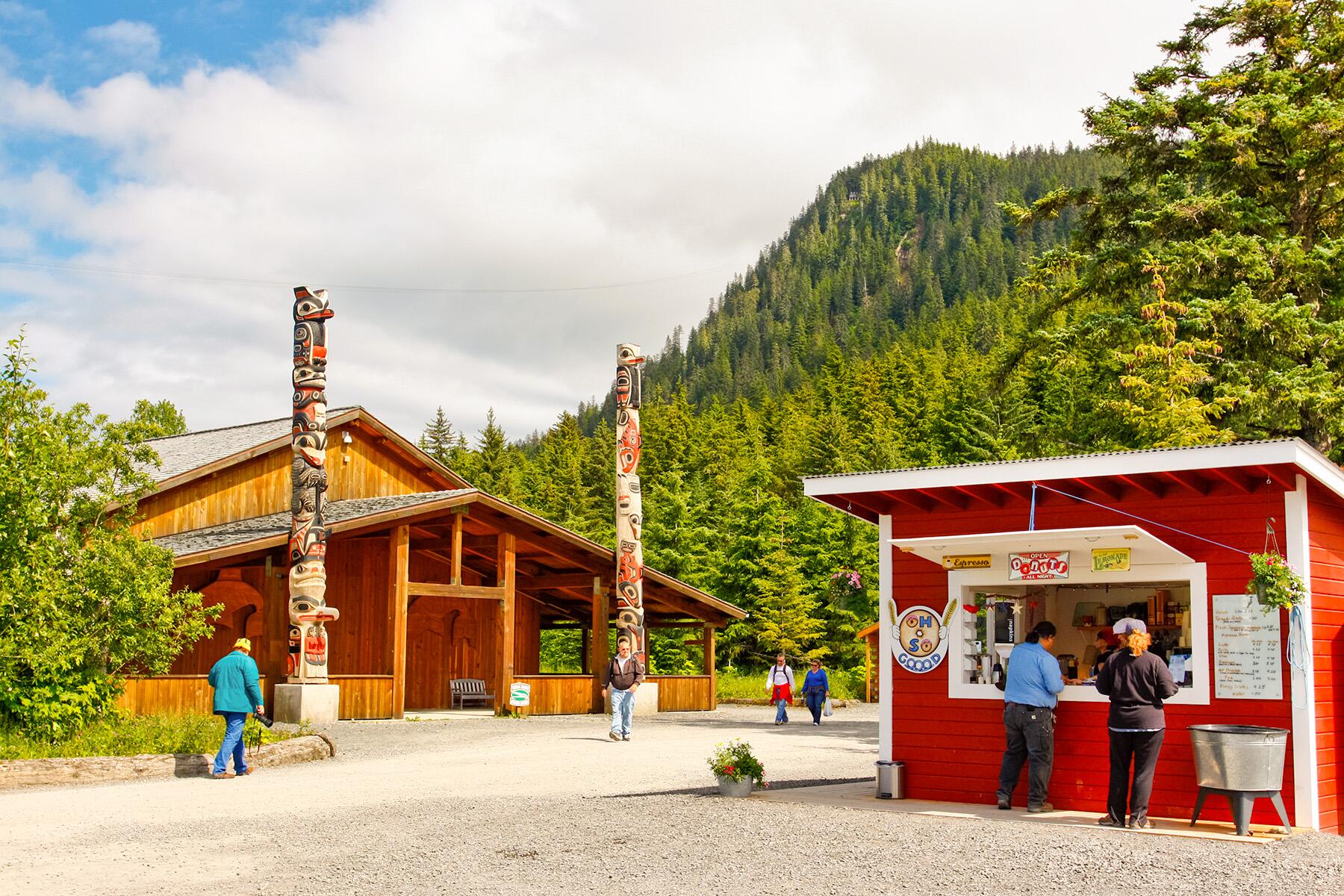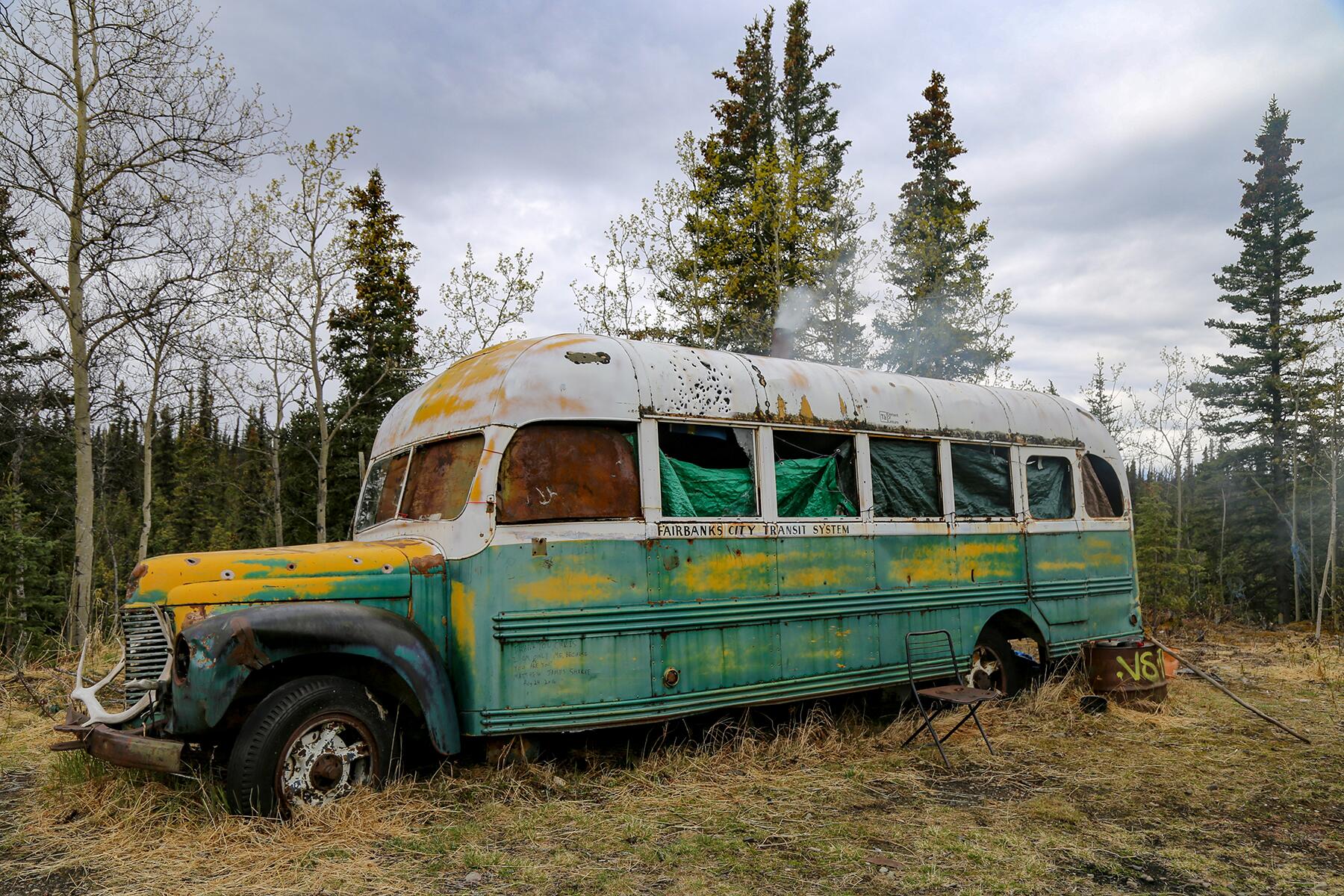Almost 30 years after Chris McCandless’ passing, I toured the movie prop bus featured in the film, Into the Wild, and learned how he might have felt within his last few days.
It was at a brewery with our tour guide that I heard the bus where Chris McCandless—the ill-fated American nomad and subject of Jon Krakauer’s nonfiction book Into the Wild—was available to visit in Healy, Alaska.
I had read Into the Wild in college when I was first starting to consider the type of life I was looking to adopt once I escaped the walls of academia. I was hungering for adventure, and there was something that drew me specifically to McCandless, who had eschewed technology, society, and modernity.
It’s been 20 years since McCandless perished, but his story buried itself in my brain and remained there persistently as I experienced my own wild peregrinations. I might have forgotten the details of how he died, where his family was from, or how old he was when he passed, but the note of caution remained as a reminder to respect the natural world. And of course, I remembered the bus.
The real bus, the one where McCandless spent the last months of his life, was taken to the Museum of the North, where it would be made into a curated object for visitors. The bus that’s available for visiting in Healy is actually the prop from the film, Into the Wild. Most visitors seemed unaware that this convincing movie prop was not the actual bus, and with beers in hand, nearby bar patrons were snapping selfies and posting on social media.
Recommended Fodor’s Video
As my husband and I grabbed a drink at the 49th State Brewery—a brewpub serving local fare and brews outside Denali National Park—we peered at the prop bus sitting in the parking lot in the ever-drizzling Alaskan rain. I peered over to gauge what visitors’ reactions were, which proved invariably mixed. Some bounded up the stairs to voyeuristically examine the props meant to match those of the real “Magic Bus” (Chris’s name for his home base), while others eyed it cautiously, as though his fate might rub off on them. It has for some.
While you would actively have to choose to suffer Chris’s fate by walking into the wild near Healy in order to view the bus, two admirers have died while making the trip while others have suffered from frostbite and near-drowning. Angela Linn, the senior collections manager at the Museum of the North, sees the bus as a memorial as well as a note of caution. “Lots of people disappear in Alaska every year,” says Linn. “Many people die while out connecting [with the outdoors] and doing what they love.”
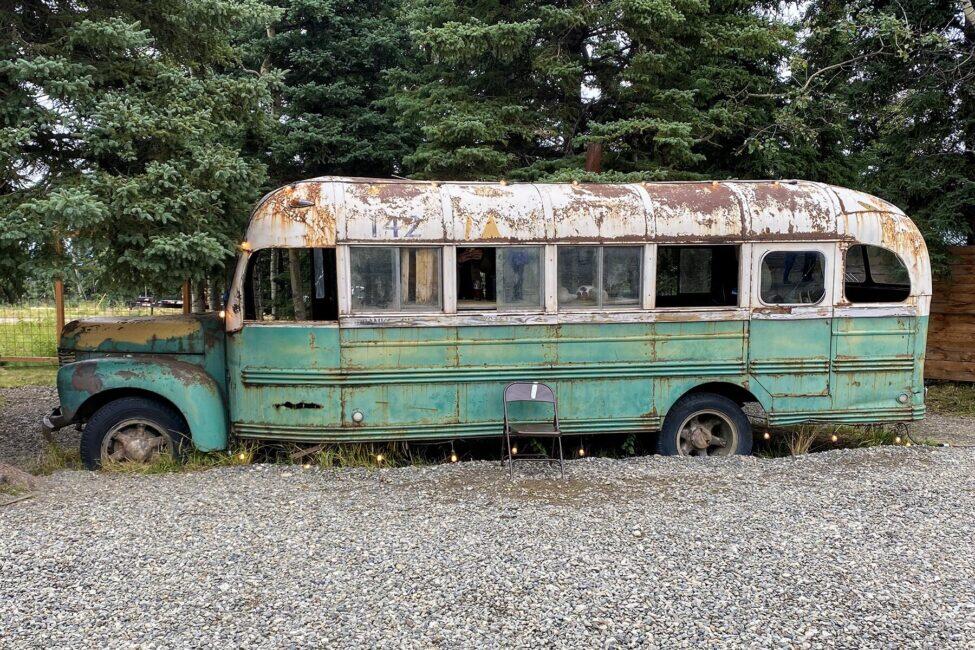
Others, it seems, saw the bus as a trophy for their Instagram feeds. As I sat there sipping my beer, I couldn’t help but wonder what Chris would make of all of the increased tourism to a wild place like Denali after a global pandemic. What would he think about how he had inadvertently played a small-but-deadly part in that tourism? Chris was a known Luddite, equating the trappings of technology as proof that we humans are disconnected from a greater purpose. What would he think of today’s smartphones in our back pockets?
When his parents offered to purchase a new car for him as a graduation gift from college, Chris vehemently declined. He was happy with his aged and yellow Datsun, already starting to become a relic from another time in the ’90s. It seemed to me as though Chris might find his death becoming both a warning and an opportunity to bolster beer sales as a bit conflicting.
When asked about having the movie prop bus as an attraction, co-founder of 49th State Brewery, David McCarthy, doesn’t seem to mind that it was bringing in new visitors—no matter what those circumstances might be to attract patrons. “Life can be hard up here,” explains McCarthy. “Unfortunately, [Chris McCandless] paid the ultimate price for his adventure, but he went for it. That’s how we feel about 49th State, we are going to lean into challenges, and hopefully, that allows us to succeed.”
“Do you want to go and check it out?” my husband asked, noticing how I continued to stare at the bus. I did, but there was something about it that felt wrong, as though we would explicitly be going against the point Chris was trying to make in life. A point that he remained so steadfastly committed to that it cost him his life. We got up from our barstools and pulled up the hoods of our raincoats. We waited while someone took a selfie before walking to the steps of the bus.
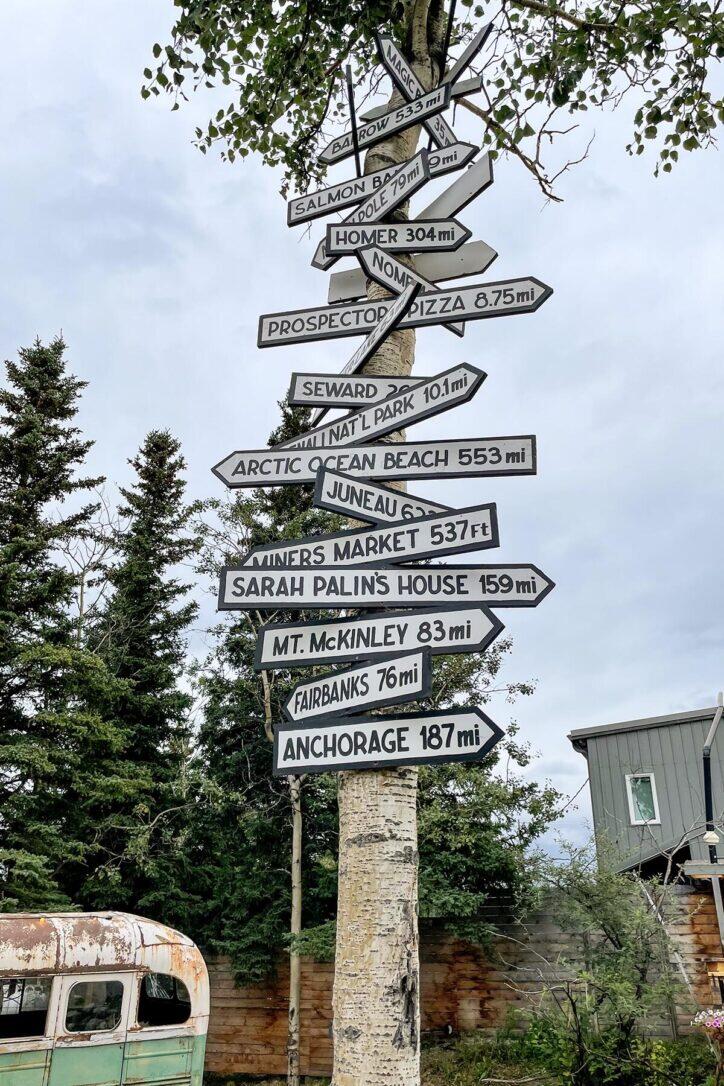
Inside, Chris’s diary entries were strewn around in a haphazard timeline from his arrival at the bus to his untimely end. Many were recorded by his moniker, Alexander Supertramp—an alter ego that was used until his final days. It seemed juvenile now, but I had identified with that boy named Alex. Sharing a name and a philosophy during similar points in our lives had woven a connection in my young mind.
It was difficult to be inside the bus, movie prop or not, and to see the items laid out exactly in the way the hikers who eventually found his body might have. We peered at laminated notes Chris had left to himself and reproduced pictures that shivered when the wind picked up and blew through the purposefully broken window, created for that extra authentic Hollywood magic.
For someone who claimed to abhor technology, Chris did take plenty of photos of himself. Some would even be called selfies in this day and age. He had a camera that he occasionally buried in certain locations around the United States before coming back and retrieving them later, and he took several pictures of himself close to his death. In what has become an almost cult-like snapshot, he can be seen leaning back in a metal chair in front of the bus, his left leg crossed over his right. In the photo, he stares at the camera as though he is daring the viewer to challenge his decision to risk his life for something he believed in.
After seeing the reproduced copy hanging within the bus, I realized why there was a metal chair located right outside the prop bus door. A young woman who looked to be in her 20s handed her phone to a friend and quickly scuttled over to recreate that photo that was printed in the copy of Into the Wild.
“Did you want a picture?” my husband asked. I shook my head. I was beginning to feel odd about the whole situation. I felt uneasy that the bus was here of all places and that it wasn’t the real bus, but a tourist attraction in which death was so close at hand.
There is evidence that points to how Chris was looking to get back and interact with society after his months in the wild. He had highlighted several passages in Tolstoy’s novella Family Happiness that indicated that he was looking to find a new type of connection: “He was right in saying that the only certain happiness is to live for others…” The day after he had marked this sentence, Chris packed up his meager belongings and headed toward civilization. He was thwarted by the raging Teklanika River, which was too dangerous for him to cross. He ended up turning back toward the bus and living out his final days alone.
My mind raced like the Teklnika as I thought about the human connection he must have been missing and how he had spent the last months of his life completely alone. As much as I felt conflicted about the scene playing out at the brewery—the selfies and the hashtags using the myth surrounding his death as a way to gain followers or attention—the site also acted as a means of connecting with our fellow human beings. In a way, Chris was able to find a connection to others, even if it was virtually and metaphysically.
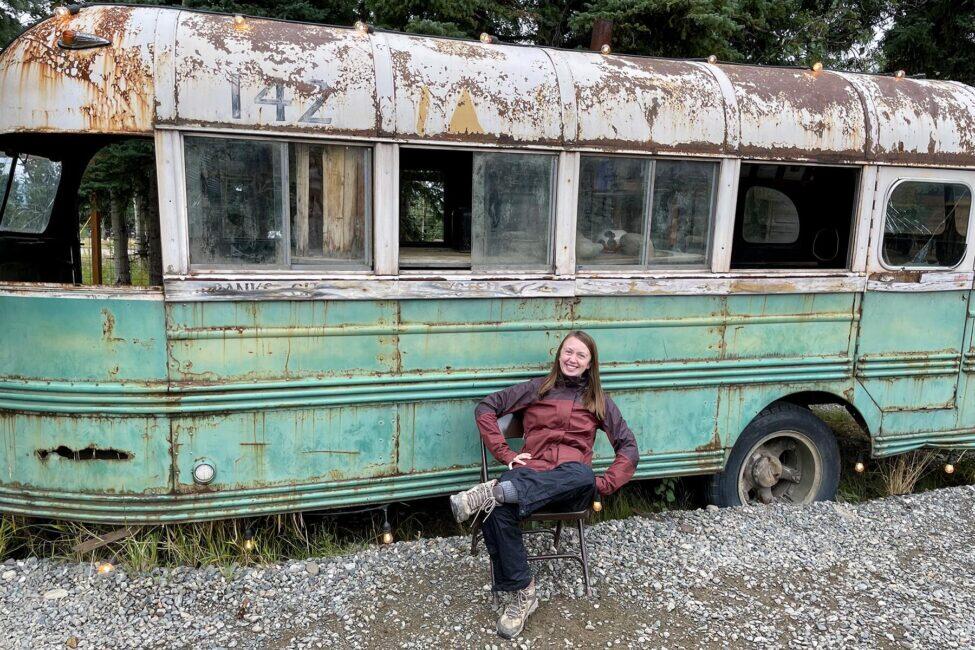
Touring the prop bus made me realize the greater point that Chris had come to. Although humans are messy, unpredictable, selfish, and vain, maybe we were worth the extra time and effort. Maybe we were worth leaving the wild for and finding our way back home.
“You know what,” I said to my husband. “Actually, I think I will get a picture.”
I drained the last of my beer before leaving it on the table and crossing the yard to the bus. Brushing some accumulated rainwater off the metal chair, I took a seat and crossed my left leg over my right, and smiled, just like Chris McCandless once had.


